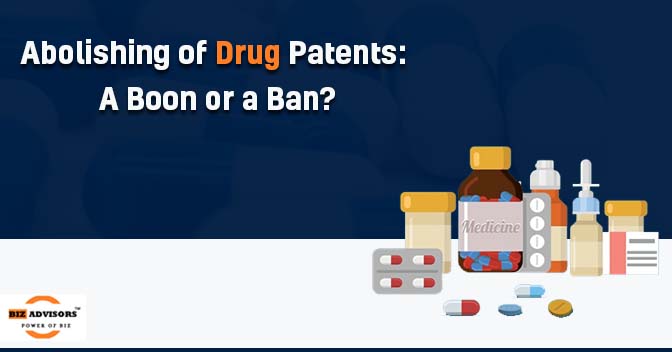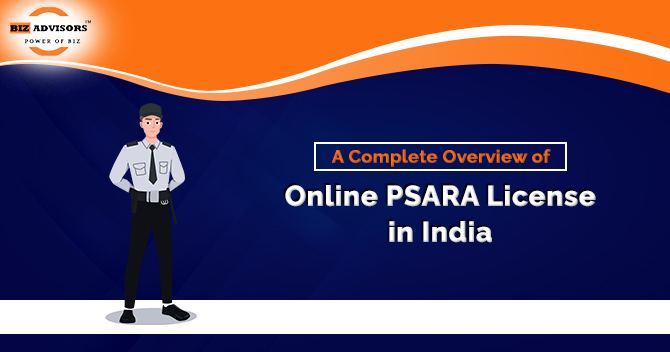Patent rights were established in India for the first time in 1856 and again in 1970. The Patents Act was passed, which repealed all previous Indian legislation. Any invention that meets the criteria of originality, usefulness, and non-obviousness can be the subject of a patent application, according to the Patents Act. Under the Patents & Designs Act, India already has a product patent system in place for all creations or inventions. In 1970, the government passed a new Patents Act that made medicines and agrochemical items ineligible for Patent Registration. We will discuss the cancellation of Drug Patents in this article.
This abolition was launched to free India from its reliance on medicine imports in bulk and formulations, as well as to support the establishment of an independent pharmaceutical sector.
What Impact Does the WTO Have on Drug Patents?
The World Trade Organization (WTO) was established in 1995, and it has resulted in unprecedented expansion in global trade. The TRPS Agreement was debated during the Uruguay Round when there was concern about the GATT (General Agreement on Tariffs and Trade), and one of the key reasons for including the Intellectual Property issue in the GATT structure was the pharmaceutical industry. India joined the GATT Agreement on April 15, 1994, making compliance with the GATT rules, which include the TRIPS Agreement[1], essential.
As a result, India is compelled to comply with the TRIPS Agreement’s basic standards for drug patents.The Indian Patent Law must now include provisions regarding the availability of patents for pharmaceutical discoveries and pharmaceuticals. Any invention of pharmaceutical medications or invention method of that specific drug that meets the confirmed criteria will be eligible for patent registration for a period of twenty years.
An Overview of Drug Patents
Pharmaceutical companies invest a lot of money on drug testing and development. As a result, the government grants them exclusive rights to their Intellectual Property in order to help them recoup the money they spent on Research &Development. Drug patents allow pharmacies to recoup their investment in developing a particular drug, engage in research, and encourage them to manufacture more reasonable drugs.
Drug patents provide protection to pharmacy businesses by granting them exclusive marketing rights and allowing them to sell pharmaceuticals. Once the license has been revoked, other entities can use the publicly available information about the drug manufacturing process to create a less expensive version of the drug, often known as generic pharmaceuticals.
Drug patents are only valid for twenty years all throughout the world. Such patents are likewise valid in India for twenty years, after which time a generic drug producer can market their version of the drug. The expiration of patents provides common corporations the green light to begin selling and marketing, effectively removing the control.
What are the advantages of medicine patents expiring?
The expiration of drug patents aids in the abolition of a drug’s monopoly. When generic medicines are introduced to the market, the price of drugs drops rapidly, making them more accessible to the general public. This can also boost and foster market competitiveness, resulting in more variety and options for the general public. It also ensures that essential and life-saving medications are available to the general people at a fair cost.
Pharmacy corporations, on the other hand, purchase the rights to Drug Patents from other businesses in order to extend their monopoly rights over that drug.
Is it appropriate to extend drug patents?
Drug patents expire in India, resulting in significant price reductions for the general population due to competition from generic copies. As a result, most experts believe that prolonging medication patents disadvantages the general public. As a result, the government should enact tough legislation to prevent pharmaceutical companies from extending medication patents.
Patents on drugs are being phased out
Patent protection ensures that innovation provides a monetary incentive for pharmacies. If there are no commercial incentives, big pharmacy businesses have little inclination to experiment and produce novel drugs. The patent system for medications encourages R&D while simultaneously protecting the interests of researchers.
While the system isn’t flawless, eliminating it might cause research to come to a halt. No one will strive to develop new drugs if drug patents are abolished because they are afraid of being exploited. As a result, the system has flaws; the ideal remedy is to restructure the system rather than to remove drug patents.
Governments should likewise strive for a deliberate balance of originality and cost-effectiveness. Though it is critical that we provide a business motive for drug manufacturers, this should not come at the expense of customers becoming bankrupt. Laws should be enacted to prevent businesses from avoiding spending money on research and instead opting to buy medication patents for sale. The patent system should favour innovation rather than profit maximisation.
What Impact Does India’s Patent Law Have on Pharmaceutical Companies?
The following is the impact of India’s patent law on pharmaceutical companies:
- Product Patent Rejection
According to the Patent Law Commission’s Report on the Revision of the Patent Law, which was led by Justice N. RajagopalaAyyangar in 1959, foreigners held 80 percent to 90 percent of India’s patents in 1959. Ninety percent of the products were not made in Indian Territory.
Foreign businesses used to prevent their copyrighted pharmaceuticals from being manufactured in India, resulting in a dearth of activity in the Indian pharmaceutical industry. The Commission believed that foreign corporations had abused the patent system to gain a monopoly on the Indian market, particularly in the pharmaceutical, food, and chemical industries.
High product prices have resulted from market monopoly. As a result, the Commission proposed that only methods or processes in the aforementioned domains be patented, which is in contrast to the Indian Patents and Designs Act 1911, which awarded patents to both products and procedures in the pharmaceutical sector.
- Mechanism for Mailbox Application
During the transition phase, the mailbox application process was available, allowing India to meet TRIPS requirements while still meeting its own development needs. India has a ten-year transition period to comply with the TRIPS requirements for pharmaceuticals, which began in 1995.
- System of Compulsory Licensing
Compulsory licensing creates greater opportunities for voluntary licensing agreements between Indian pharmaceutical companies and multinational corporations.
According to the Indian Patent Act, any individual who is interested can write an application to the Controller of the Patent after three years have passed since the patent was granted. Before seeking for a compulsory license, the applicant must first obtain a voluntary license from the patentee. It must be completed within six months of the first request; the applicant is allowed to file for a compulsory license.
Why isn’t the patent system functioning properly?
Despite the fact that pharma firms contribute a lot of innovation, they attempt to maximise their profits through extending medication patents. While patent protection allows them to recuperate their investments over a set length of time, it also prevents competitors from entering the market in a variety of ways. Patent walls are built around drug formulas and items, with patents lasting well over 20 years. Humira, for example, has over 100 patents surrounding it, allowing it to maintain its monopoly. Between 2005 and 2015, almost 75% of patents were refurbished, demonstrating that the system supports recycling more than ever before. Companies can also obtain larger returns because new licenses come with minor dose or administration modifications.
Conclusion – Abolishing of Drug Patents
Drug patents are being phased out in India, which will help to abolish big pharma’s monopoly on any drug. As a result of the aforementioned factors, eliminating the Drug Patent is beneficial to the general public since drug prices will reduce. The Indian government should strive for a mix between innovation and fair price. It is necessary to provide a business motive to drug manufacturers, but not at the expense of bankrupting customers. Companies should be prohibited from not investing in research and instead obtaining drug patents for sale.
Read our article:Can One Sell a Trademark In India? – A Complete Guide
 9559179325
9559179325 9559179325
9559179325





